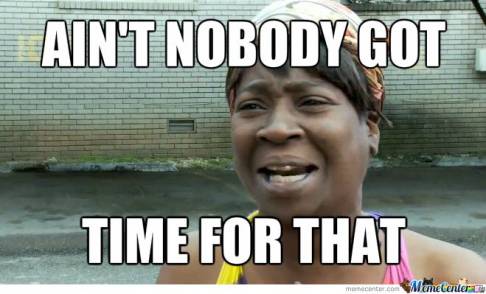Writing and Editing Part 2
For editing part 2 let’s get past acting like your own biggest fan, like we did in Editing Part 1. Time to get out the scissors. Or the weedwhacker, as is the case.
More Editing Part 2 of a 2-Part Saga
So, let’s go to editing Part 2!
Now last time, we looked at some general issues surrounding editing. Although the process may seem daunting, it still must be done. For this post, I will assume you have done the tasks outlined in the first part.
If not, then this methodology will still work. But I think you’ll find you will need to do the preliminary steps anyway. Hence you might as well get them done now. Then it’s on to Editing Part 2.
Spell Check
Maybe it sounds dumb. Perhaps it’s obvious. But you still need to run a spell checker. Don’t have one? Then try a free spell checker online. But if you have a spellchecker in your application, use it.
Understand that certain typos will be a problem. If you type ‘that’ for ‘this’, it will not show up, as those are both real words. Hence your spellchecker provides only a preliminary solution. Have the program ignore names, in order to eliminate them from contention.
Find and Replace
Your find feature is a godsend; use it! Furthermore, if you use names which might have typical typos, try searching for them with ctrl-F.
For example, the main character in my 2015 NaNoWriMo novel had the name of Marnie. Hence I searched for the word ‘Marine’. But I made sure to check on usage before I hit ‘replace’.
This feature also works when you change a character’s name.
Find and Count
Do you overuse some expressions? Repetitive language isn’t bad. But too much of it is dull. Consider usage, and adjust repeated sentences accordingly.
That Attack
My good friend D. R. Perry taught me this one, and I love it. Have your program count how often you use the word ‘that’. Of course, it’s not a bad word outright. But overusing anything can be dull.
By counting this particular word, you get a handle on your use of certain idiomatic phrases. E. g. ‘he thought that’, ‘she said that’, ‘they felt that that was funny’.
In all three of these instances, the word ‘that’ can be cut without losing any sense.
Synonym Sweep
This time, search for the word ‘very’. As with ‘that’, the word is perfectly fine, despite what Stephen King says.
However, he is right (as was Robin Williams in Dead Poets Society) insofar as it’s a not so precise use of language. What’s better: ‘very big’ or ‘gigantic’? For a children’s book, probably the former. For any other kind of book, it may be the latter.
If you can clip the adverb and instead enhance the adjective with a better synonym, your writing will be more interesting. Stay away from obscure adjectives (e. g. ‘Brobdingnagian’).
Also, your characters can use all the adverbs they like when speaking. But try to cut them in your scene setting, your transitions, and your exposition.
That’s the first half of Editing Part 2. Now onto the second half.
Editing Part 2: It’s Time for the Fat Cutter
You’ve been doing this all along, with ‘that attack’ and ‘synonym sweep’. The idea is to excise unnecessary words. Unlike the former two methods, this one will require some reading. Up until now, everything has been done programmatically.
Now you need to do some digging. But first check how long your chapters are.
There is no hard and fast rule for chapter length, but if all of your chapters are 20 – 35 pages and one is 63, then that one might have some fat you can cut. Or maybe you can just split it into two or even three chapters.
Consider descriptive text and exposition. You need it, but how long does it have to be? Familiar places in the current time period probably just need a few words: downtown Detroit, the Great Barrier Reef, etc.
Or familiar places in the past need more but can still be pretty spare, such as Victorian-era London, or ancient Rome during Claudius Caesar’s reign.
Familiar places in the future need more but you can build on today: 2023 Berlin maybe has taller buildings, 3116 Istanbul might be enclosed in a geodesic dome. Transportation is likely a lot faster.
But unfamiliar places will need more lavish attention to detail. Consider this: metaphors and similes are your friends. The new planet might be as big as Saturn but without rings, and smell like wet dog.
Editing Part 2 of Scene Shifts and Plot Changes
These are much bigger and will take up a lot more of your time. Before you do either, you might want to consider whether your story can be understood by beta readers without doing either. If so, then keep this in mind (maybe take some notes) but don’t do it.
See what beta readers say. Maybe you won’t need to make such drastic changes at all.
Final Read-Through Before Betas
Give it one last read-through. Look for the right words in all the wrong places. E. g. a typo which turned out to be a correctly spelled word, so spellchecker missed it. Those can be devilishly hard to find, so look closely.
Look for sense and ease of understanding. Make sure your plot makes sense. Then kiss your manuscript good-bye (for the time being) and send it off to beta readers.
Post-Beta Readings and Editing Part 2
After betas, Editing Part 2 should be followed by a kind of Editing Part 3. Consider your betas’ advice. You don’t need to take it all, but do listen with an open mind. Do one last read-through and then send your work to a professional editor, if you can afford one.
Why should you, if you’ve done all this? Because you (or I) may have missed something. In addition, all this preliminary work was free. Your edited work will come back a lot faster and cleaner.
Then, and only then, can you consider querying.
Editing Part 2—yep, there was a part 1, as well. See below for the link.
Want More on Beta Reading and Editing?
If you want more on beta reading and editing, then please be sure to check out the following blog posts:
Beta Reading:
• Beta Reading for Indie Writers
† Beta Reading, Part 2
• Working With a Beta Reader
† Beta Readers and Editors
Editing:
• Writing Needs Editing, Part 1
† Choosing an Editor
† Editing Tips





You must be logged in to post a comment.